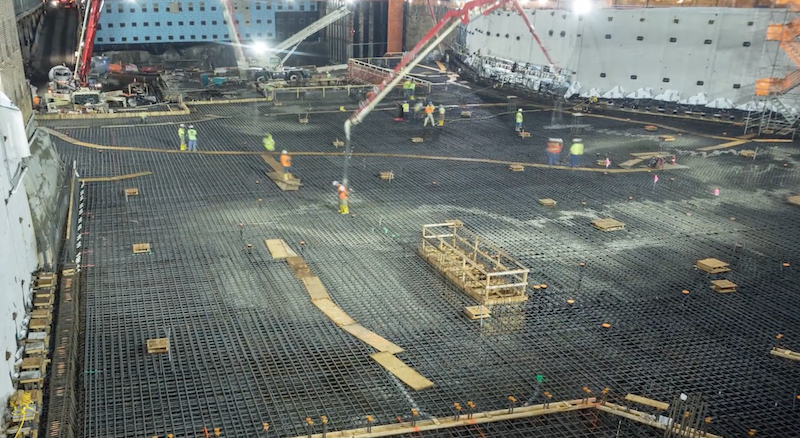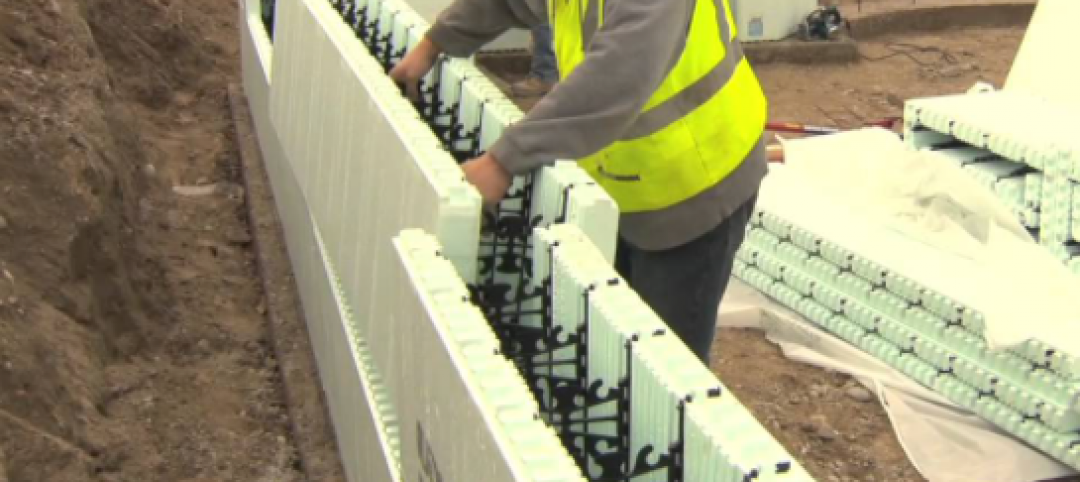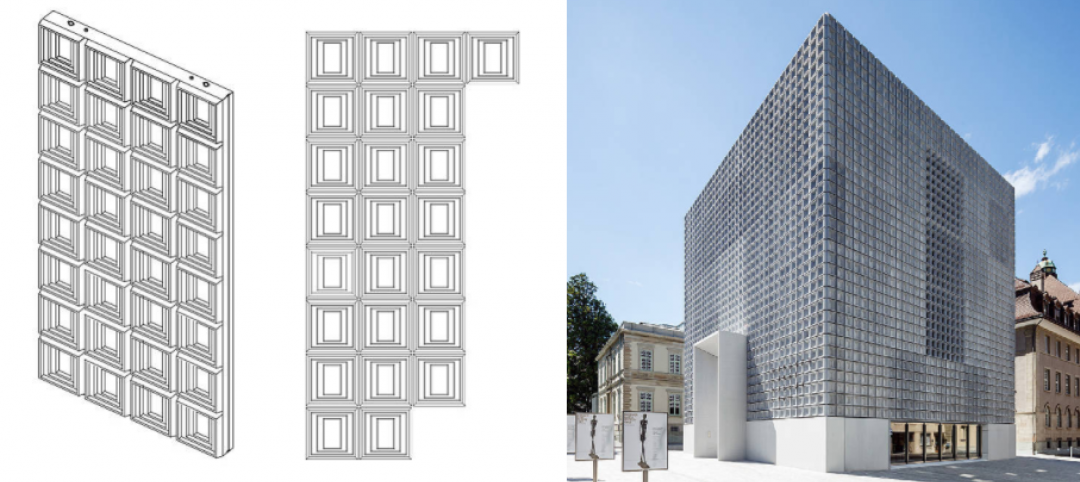The Pavilion, Penn Medicine’s $1.5 billion hospital, hopes to make waves in the medical world once it is completed. With a cornucopia of state-of-the-art features, the Foster + Partners-designed hospital is expected to provide a new level of patient care.
Before any of that happens, though, the hospital has already accomplished something no Philadelphia hospital, or any other structure for that matter, has accomplished before. On July 8, the Pavilion set the record for the largest concrete pour in Philadelphia’s history, Philly Voice reports.
Over 120 workers from LF Driscoll and Balfour Beatty poured 6,540 cubic yards of concrete from 654 concrete trucks over a period of 14 straight hours. The concrete, which is being used to create the foundation of the new building, was poured onto 965 tons of reinforcement steel.
The previous record, according to Curbed Philadelphia, was set in 2016 at the site of the W and Element Hotels. That pour took 24 hours, involved 600 cement trucks, and used 5,850 cubic yards of concrete
The Pavilion is not scheduled to open until 2021.
Related Stories
| Aug 11, 2010
Suffolk Construction Company acquires William A. Berry & Son
Suffolk Construction Company, New England’s largest construction company announced today that they have acquired William A. Berry & Son (Berry), the second largest construction company in the region. The two companies, both with deep New England roots and successful track-records, combined will have more than 1,200 employees and projected revenues of $2 billion.
| Aug 11, 2010
AIA Course: Building with concrete – Design and construction techniques
Concrete maintains a special reputation for strength, durability, flexibility, and sustainability. These associations and a host of other factors have made it one of the most widely used building materials globally in just one century. Take this free AIA/CES course from Building Design+Construction and earn 1.0 AIA learning unit.
| Aug 11, 2010
AIA Course: Historic Masonry — Restoration and Renovation
Historic restoration and preservation efforts are accelerating throughout the U.S., thanks in part to available tax credits, awards programs, and green building trends. While these projects entail many different building components and systems, façade restoration—as the public face of these older structures—is a key focus. Earn 1.0 AIA learning unit by taking this free course from Building Design+Construction.
| Aug 11, 2010
Tall ICF Walls: 9 Building Tips from the Experts
Insulating concrete forms have a long history of success in low-rise buildings, but now Building Teams are specifying ICFs for mid- and high-rise structures—more than 100 feet. ICF walls can be used for tall unsupported walls (for, say, movie theaters and big-box stores) and for multistory, load-bearing walls (for hotels, multifamily residential buildings, and student residence halls).
Concrete | Aug 11, 2010
8 Innovations That Will Rock Your Next Concrete Project
If you think you've seen it all when it comes to concrete construction, then you haven't sat down with Blaine Brownell. The architect-turned-blogger-turned-author has become the industry's foremost expert in everything that is unconventional and provocative in the building products field. For the past eight years, this LEED Accredited Professional, BD+C “40 Under 40” winner, and vis...
| Aug 11, 2010
Great Solutions: Products
14. Mod Pod A Nod to Flex Biz Designed by the British firm Tate + Hindle, the OfficePOD is a flexible office space that can be installed, well, just about anywhere, indoors or out. The self-contained modular units measure about seven feet square and are designed to serve as dedicated space for employees who work from home or other remote locations.









